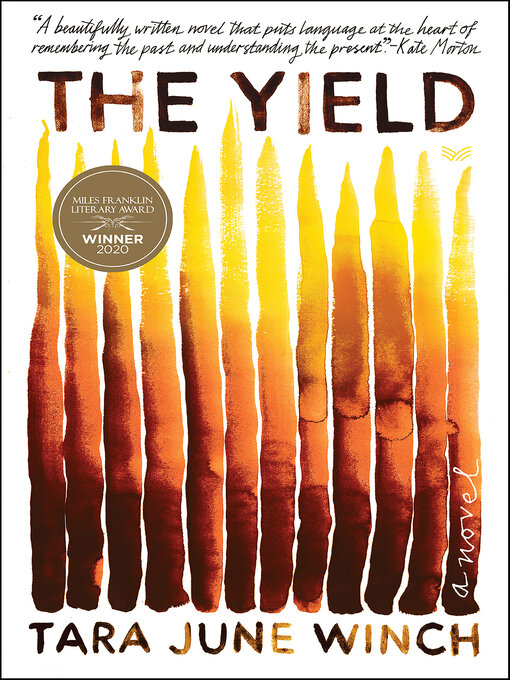Winner of the 2020 Miles Franklin Literary Award and 2021 Kate Challis RAKA Award!
"A beautifully written novel that puts language at the heart of remembering the past and understanding the present."—Kate Morton
“A groundbreaking novel for black and white Australia.”—Richard Flanagan, Man Booker Prize winning author of The Narrow Road to the Deep North
A young Australian woman searches for her grandfather's dictionary, the key to halting a mining company from destroying her family's home and ancestral land in this exquisitely written, heartbreaking, yet hopeful novel of culture, language, tradition, suffering, and empowerment in the tradition of Louise Erdrich, Sandra Cisneros, and Amy Harmon.
Knowing that he will soon die, Albert “Poppy” Gondiwindi has one final task he must fulfill. A member of the indigenous Wiradjuri tribe, he has spent his adult life in Prosperous House and the town of Massacre Plains, a small enclave on the banks of the Murrumby River. Before he takes his last breath, Poppy is determined to pass on the language of his people, the traditions of his ancestors, and everything that was ever remembered by those who came before him. The land itself aids him; he finds the words on the wind.
After his passing, Poppy’s granddaughter, August, returns home from Europe, where she has lived the past ten years, to attend his burial. Her overwhelming grief is compounded by the pain, anger, and sadness of memory—of growing up in poverty before her mother’s incarceration, of the racism she and her people endured, of the mysterious disappearance of her sister when they were children; an event that has haunted her and changed her life. Her homecoming is bittersweet as she confronts the love of her kin and news that Prosperous is to be repossessed by a mining company. Determined to make amends and honor Poppy and her family, she vows to save their land—a quest guided by the voice of her grandfather that leads into the past, the stories of her people, the secrets of the river.
Told in three masterfully woven narratives, The Yield is a celebration of language and an exploration of what makes a place "home." A story of a people and a culture dispossessed, it is also a joyful reminder of what once was and what endures—a powerful reclaiming of Indigenous language, storytelling, and identity, that offers hope for the future.





